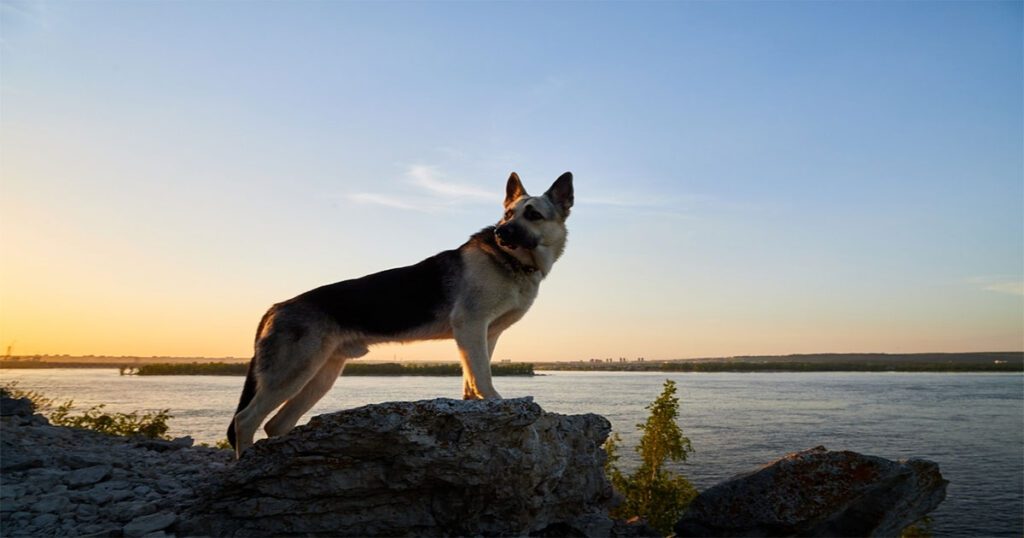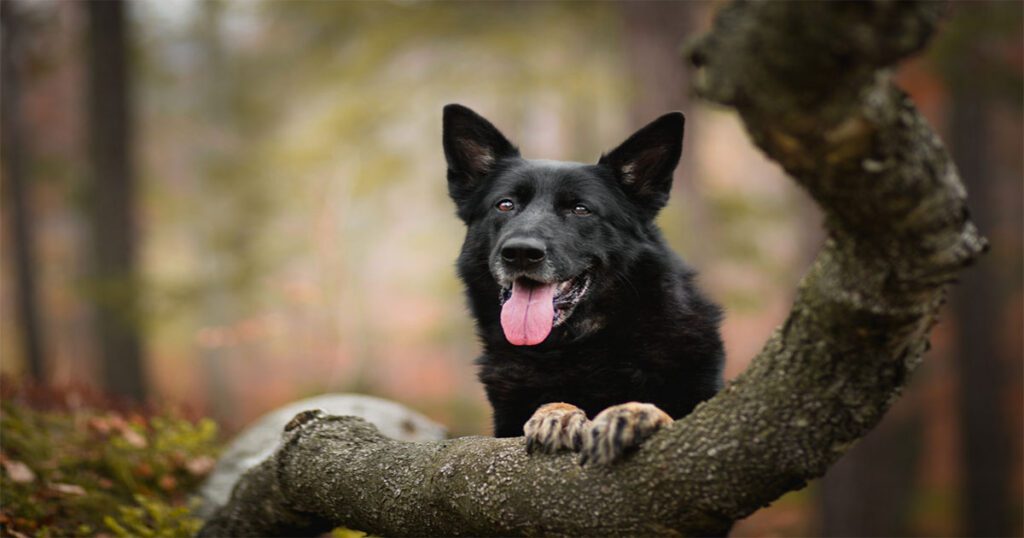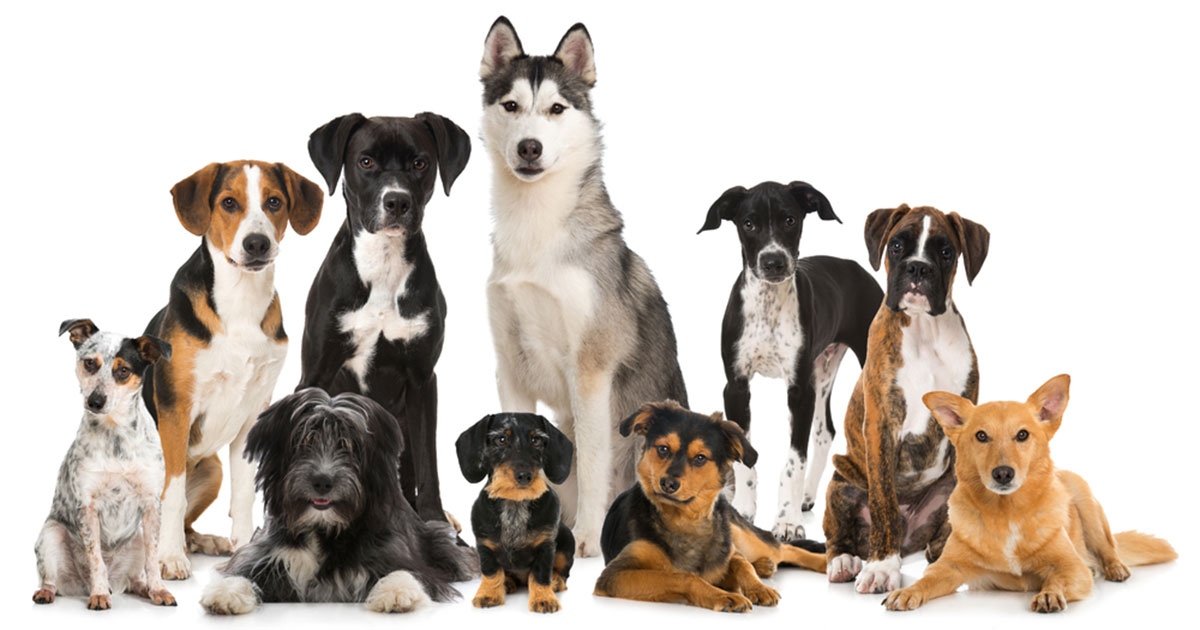German Shepherds, also known as Alsatians, are one of the most popular dog breeds in the world. Their intelligence, loyalty, and versatility make them ideal for various roles, including working dogs, family pets, and service animals. But did you know that German Shepherds come in various variations?
In this comprehensive guide, we will explore the different types and variations of German Shepherds, shedding light on their unique characteristics, temperaments, and purposes.
Table of Contents
The History and Origins of the German Shepherd Breed
The German Shepherd breed has a rich history that dates back to the late 19th century in Germany. Captain Max von Stephanitz played a crucial role in the breed’s development, aiming to create a versatile and intelligent working dog. He emphasized the importance of traits like intelligence, loyalty, and strong working abilities.
German Shepherds quickly gained recognition for their exceptional skills in herding, protection, and other working tasks. Today, they are beloved worldwide for their versatility and unwavering loyalty.
Variations of German Shepherds
German Shepherds exhibit variations in their appearance, coat type, and purpose. Let’s delve into each of these variations and discover what sets them apart.
The Traditional German Shepherd
The Traditional German Shepherd, also known as the working-line German Shepherd, is the original type of this breed. These German Shepherds are bred specifically for their working abilities and are commonly seen in roles such as police dogs, search and rescue dogs, and military dogs. They possess a strong drive, high energy levels, and exceptional intelligence, making them excellent working partners.
The Show-Line German Shepherd
The Show-Line German Shepherd, also referred to as the conformation-line German Shepherd, is bred for its appearance and adherence to breed standards. Show-line German Shepherds have a more angled rear end and a calmer temperament compared to their working-line counterparts. They are often showcased in dog shows and competitions, where their beauty and elegance are appreciated.
The American German Shepherd

The American German Shepherd
The American German Shepherd is a variation that has developed separately from the traditional German Shepherd. These dogs have a distinct appearance, characterized by a more sloped back and a stronger focus on aesthetics rather than working abilities. While some American German Shepherds are still used in working roles, their popularity as family pets and companions has risen significantly.
The European German Shepherd

The European German Shepherd
The European German Shepherd, as the name suggests, originates from Europe, particularly Germany. These German Shepherds are known for their strong drive, solid working abilities, and high trainability. They often excel in protection sports, obedience trials, and other working competitions. European German Shepherds are valued for their versatility and are sought after by trainers and enthusiasts worldwide.
The White German Shepherd
The White German Shepherd is a stunning variation that stands out due to its pure white coat. While their appearance may differ, White German Shepherds share the same characteristics and temperament as their traditional-colored counterparts. They are loyal, and intelligent, and make excellent family pets.
The Black German Shepherd

The Black German Shepherd
The Black German Shepherd is another striking variation of this breed. These dogs possess a solid black coat, which sets them apart from the more commonly seen black and tan coloration. Black German Shepherds are known for their loyalty, protective nature, and exceptional working abilities.
The Panda German Shepherd
The Panda German Shepherd is a rare and unique variation characterized by its white base coat with black patches resembling the markings of a panda bear. This eye-catching appearance makes them stand out in a crowd. Panda German Shepherds are highly sought after by enthusiasts who appreciate their distinctive and captivating coat pattern.
The Sable German Shepherd
The Sable German Shepherd boasts a beautiful coat with varying shades of red, brown, and black. These dogs exhibit a stunning range of color variations and are known for their striking appearance. Sable German Shepherds are highly trainable, and versatile, and make great working partners.
The Plush-Coated German Shepherd
The Plush-Coated German Shepherd is a variation characterized by its dense and luxurious coat. These German Shepherds have a longer and thicker coat compared to their short-haired counterparts. The plush coat provides additional insulation and protection, making them well-suited for colder climates.
The Long-Haired German Shepherd
The Long-Haired German Shepherd is another variation with a distinct coat type. These dogs possess a long, flowing coat that requires regular grooming to maintain its beauty and prevent matting. Long-Haired German Shepherds are highly valued for their stunning appearance and gentle demeanor.
Rare or Unrecognized Variations
All right, now let’s dive into a fascinating world within the realm of German Shepherds: the rare or unrecognized variations. These are the hidden gems, the unconventional beauties that may not be as widely known but definitely deserve our attention. So, fasten your seatbelts as we explore these unique pups!
When it comes to variations, the German Shepherd breed holds some surprises up its sleeve. We’re talking about those less common variations and experimental breeding programs that make us go, “Wow, I’ve never seen that before!” Imagine coat colors, patterns, or features that break away from the traditional norms.
One example of a rare variation is the striking sable coat. These pups boast a range of hues, from light to dark, creating a captivating interplay of colors. Their fur has an almost mesmerizing effect, as if each strand has its own story to tell. It’s truly a sight to behold.
But, while we marvel at the beauty of these rare variations, it’s important to approach them with caution. Yes, I’m talking about potential ethical concerns and health issues that can arise from breeding for extreme or unusual traits. As much as we appreciate the uniqueness, we must prioritize the well-being of these incredible animals.
When exploring rare variations, we need to ensure that responsible breeding practices are upheld. It’s crucial to work with reputable breeders who prioritize the health and welfare of the dogs above all else. Let’s remember that breeding for novelty alone can lead to unintended consequences, both physically and genetically.
So, while we celebrate the diversity and allure of these rare and unrecognized variations, let’s do so with a mindful approach. Let’s promote responsible breeding, encourage transparency, and prioritize the long-term health and happiness of these incredible German Shepherds.
Choosing the Right German Shepherd Variation
Now that we’ve uncovered the incredible variations within the German Shepherd breed, it’s time to talk about something crucial: choosing the right German Shepherd variation for you. This decision isn’t one to be taken lightly, my friends. It requires careful consideration, self-awareness, and a deep understanding of your lifestyle, needs, and expectations. So, let’s dive in and make an informed choice!
First and foremost, you need to think about your lifestyle. Are you an active individual who loves spending time outdoors, going on adventures, and engaging in high-energy activities? Or do you prefer a more laid-back and relaxed routine? The variation you choose should align with your energy levels and the activities you enjoy. For instance, if you’re an adrenaline junkie, you might find a working line German Shepherd to be your perfect match, as they excel in tasks that require focus, athleticism, and mental stimulation.
Next, consider your specific needs and expectations. Are you looking for a loyal companion to join your family and provide love, companionship, and protection? Or perhaps you have a specific purpose in mind, such as participating in dog shows or engaging in specialized training programs. Different variations of German Shepherds have distinct traits and characteristics that make them better suited for certain roles or purposes. For example, show-line German Shepherds are often chosen for their conformation and grace in the show ring while working-line German Shepherds are highly sought after for their drive and work ethic in various professional fields.
But let’s not forget about one critical factor: responsible breeding practices and reputable sources. When choosing your German Shepherd variation, it’s essential to work with breeders who prioritize the health, temperament, and overall well-being of their dogs. Responsible breeders focus on producing puppies with sound genetics, good temperament, and proper socialization. They conduct health screenings and ensure that their breeding dogs are well-cared-for individuals. By supporting these breeders, you’re not only bringing home a wonderful companion but also contributing to the overall betterment of the breed.
So, as you embark on this journey of choosing the right German Shepherd variation, remember to take into account your lifestyle, needs, and expectations. Be honest with yourself about the level of activity you can provide and the purpose you have in mind for your furry friend. And always, always choose responsible breeders who are committed to the well-being of these magnificent animals.
Now, go forth and make an educated choice, my friends. Find that perfect German Shepherd variation that will bring joy, companionship, and fulfillment to your life. Remember, your furry friend will be by your side through thick and thin, so choose wisely and embrace the incredible bond that awaits you.
The Role of German Shepherds in Law Enforcement and Military
German Shepherds have become synonymous with law enforcement and military work due to their exceptional abilities. Their intelligence, strength, and trainability make them perfect for tasks such as search and rescue, drug detection, bomb detection, and apprehension work. German Shepherds serve alongside police officers, military personnel, and security teams, helping maintain public safety and protect communities worldwide.
German Shepherds as Service Dogs and Therapy Dogs
German Shepherds possess the qualities necessary to excel as service dogs and therapy dogs. Their intelligence, loyalty, and adaptability make them highly effective in assisting individuals with disabilities, such as those with visual impairments or mobility challenges. Additionally, their calm and empathetic nature makes them ideal candidates for therapy work, providing comfort and support to those in need, such as in hospitals, nursing homes, and rehabilitation centers.
The Importance of Proper Training and Socialization for German Shepherds
Training and socialization are essential for German Shepherds to become well-behaved and balanced companions. Early training should focus on obedience, basic commands, and proper behavior around people and other animals. Socialization exposes them to different environments, people, and situations, helping them develop confidence and appropriate responses. Consistent training and positive reinforcement are key to raising a well-adjusted German Shepherd.
German Shepherds and Children: A Perfect Match?
German Shepherds can be a wonderful addition to families with children. They are known for their protective nature and can form strong bonds with their human family members, including children. However, proper supervision and training are vital to ensure a safe and harmonious relationship. Teaching children how to interact with dogs and establishing boundaries for both the dog and the child are crucial. With the right guidance and socialization, German Shepherds and children can indeed be a perfect match, providing companionship, protection, and lasting memories.
German Shepherd Health and Common Medical Conditions
Like any other breed, German Shepherds may be prone to certain health conditions. Common medical conditions that affect German Shepherds include hip and elbow dysplasia, degenerative myelopathy, bloat, allergies, and various genetic disorders. Regular veterinary check-ups, a balanced diet, exercise, and preventive measures can help maintain the overall health and well-being of German Shepherds.
German Shepherds in Competitive Dog Sports
German Shepherds are highly versatile and excel in various competitive dog sports. Their intelligence, agility, and trainability make them perfect candidates for activities such as obedience trials, agility competitions, tracking, protection work, and herding trials. Engaging in dog sports not only provides mental and physical stimulation for German Shepherds but also strengthens the bond between the dog and its owner.
German Shepherd Rescue and Adoption
German Shepherd rescue and adoption is a compassionate and fulfilling way to bring these incredible dogs into your life. Many German Shepherds need loving homes due to various reasons. Rescue organizations and shelters often have German Shepherds of different ages, variations, and temperaments available for adoption. By adopting a German Shepherd, you provide a second chance at a happy life and experience the loyalty and companionship they offer.
Caring for the Unique Coat Types of German Shepherds
German Shepherds exhibit various coat types, including short-haired, long-haired, and plush-coated variations. Each coat type requires specific grooming and care. Regular brushing helps maintain a healthy coat, prevent matting, and reduce shedding. Long-haired German Shepherds may require more frequent grooming to keep their coats free from tangles and debris. Additionally, proper nutrition and regular bathing are essential for the overall well-being of German Shepherds with unique coat types.
German Shepherds as Working Dogs in Various Fields
German Shepherds have a long-standing reputation as exceptional working dogs in various fields. They play a crucial role in law enforcement, serving as police dogs, search and rescue dogs, and drug detection dogs.
German Shepherds are also utilized in service dog roles, assisting individuals with disabilities. Furthermore, their herding instincts make them valuable assets in agricultural settings. The versatility and intelligence of German Shepherds allow them to succeed in a wide range of working roles.
Frequently Asked Questions
Q 1: Are German Shepherds with different variations suitable for families?
Ans: Yes, German Shepherds with different variations can be suitable for families. However, it’s important to consider factors such as temperament, energy levels, and individual characteristics when selecting a German Shepherd as a family pet. Some variations, like the show-line German Shepherds, are known to have a calmer temperament, which can make them more suitable for families with young children.
Q 2: Do all variations of German Shepherds require the same level of training?
Ans: While all German Shepherds require training and socialization, the level and type of training may vary depending on the specific variation. Working-line German Shepherds, for example, have higher energy levels and drive, requiring more structured training and mental stimulation. On the other hand, show-line German Shepherds may have a more laid-back temperament and may require a different approach to training.
Q 3: Are there any health concerns specific to certain variations of German Shepherds?
Ans: Like any other breed, German Shepherds may be prone to certain health conditions. However, it’s important to note that these health concerns are not specific to particular variations but can occur across the breed as a whole. Common health issues in German Shepherds include hip dysplasia, elbow dysplasia, and degenerative myelopathy. Regular vet check-ups, a balanced diet, and proper exercise can help maintain the overall health of your German Shepherd, regardless of its variation.
Q 4: Can I participate in dog sports and activities with my German Shepherd, regardless of its variation?
Ans: Absolutely! German Shepherds, regardless of their variation, excel in various dog sports and activities. From obedience trials to agility competitions and even tracking and protection sports, German Shepherds’ intelligence and versatility make them well-suited for a wide range of activities. It’s important to identify your dog’s strengths and interests and choose activities that align with their natural abilities.
Q 5: Are certain variations of German Shepherds more prone to shedding?
Ans: German Shepherds, in general, are moderate to heavy shedders. However, variations with longer or denser coats, such as the long-haired and plush-coated German Shepherds, may shed slightly more compared to their short-haired counterparts. Regular grooming, including brushing sessions, can help manage shedding and keep your German Shepherd’s coat healthy and free from mats.
Q 6: Can I find German Shepherds of different variations in shelters or rescue organizations?
Ans: Yes, it’s possible to find German Shepherds of different variations in shelters or rescue organizations. While the availability may vary depending on your location, adopting a German Shepherd from a shelter or rescue can be a fulfilling experience. By providing a loving home to a rescued German Shepherd, you not only give them a second chance but also get a wonderful companion in return.
Conclusion
German Shepherds are a remarkable breed, renowned for their intelligence, loyalty, and versatility. The variations within the German Shepherd breed add an extra layer of diversity, allowing individuals to find a dog that aligns with their preferences and needs.
Whether you’re looking for a working partner, a show dog, or a loving family pet, the variations of German Shepherds offer something for everyone. Embrace the uniqueness of each variation and enjoy the journey with your German Shepherd by your side.

I’m David, an expert contributor and writer, with two furry friends of my own, I know the challenges of raising and caring for dogs. From training to nutrition and health, my goal is to provide valuable insights and advice to help create strong bonds and happy, healthy lives. Find me in Twitter.




